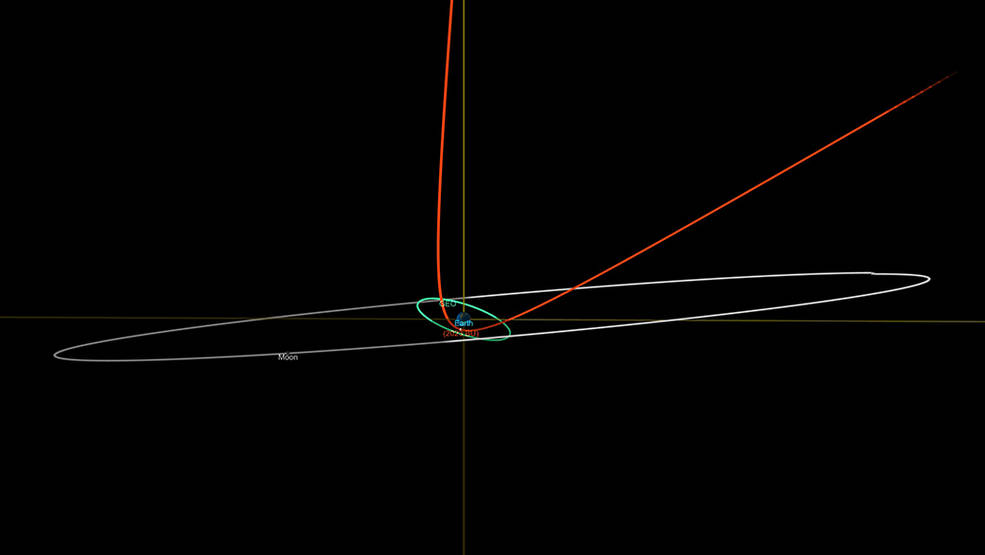Asteroid passing 'very close' to Earth today
An asteroid only discovered last weekend will zoom past Earth today, making one of the closest known approaches for a near-Earth object on record.
Asteroid 2023 BU was discovered by an amateur astronomer named Gennadiy Borisov in Crimea last weekend on Saturday, January 21, 2023.
Since then, additional observations have confirmed that 2023 BU will pass extremely close to Earth this week, getting around 10 times closer to our planet’s surface than our weather satellites.
Asteroid 2023 BU is predicted to make a very close approach to Earth on the morning of Friday, January 27 Australian time. According to NASA, there is no risk of the asteroid hitting Earth and it should zoom over the southern tip of South America at roughly 11:27am Australian Eastern Daylight Time (AEDT).

Image: Projected trajectory of 2023 BU (red line) as it passes close to Earth this week, with Earth's gravity significantly deflecting the asteroid's trajectory. This image also shows the orbits of Earth's geosynchronous satellites (green) and the Moon (grey). Source: NASA / JPL-Caltech
The asteroid is expected to pass around 3,600 km above Earth’s surface. This is roughly one tenth the altitude of the Himiwari-9 satellite that observes Australia’s weather, which sits in a geostationary orbit approximately 35,800 km above our planet's surface.
Asteroid 2023 BU is a relatively small asteroid that measures approximately 3.5 to 8.5 metres in length, making it about the size of a small truck.
If an asteroid this large were to hit Earth, NASA says that it would “turn into a fireball and largely disintegrate harmlessly in the atmosphere, with some of the bigger debris potentially falling as small meteorites.”
NASA’ Centre for Near Earth Object Studies (CNEOS) constantly monitors all known near-Earth objects and asseses them for impact risk. NASA even has a Planetary Defence Coordination Office (PDCO) that aims to detect and respond to the threat of near-Earth object impacts.